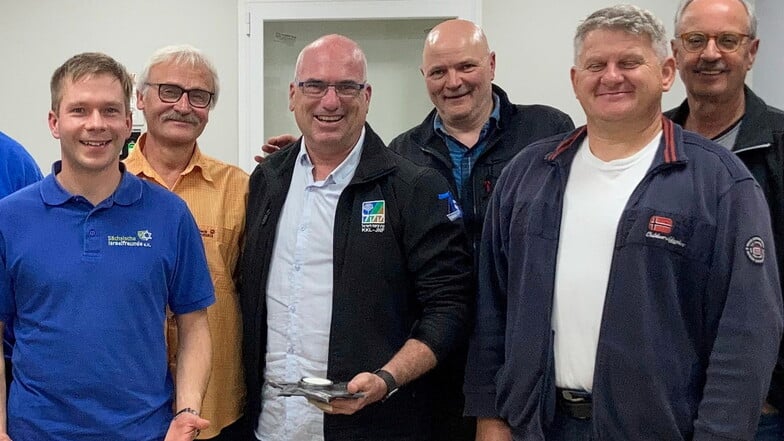From Henry Berndt
They take vacation and pay for their own flights to renovate the homes of Holocaust survivors and repair soup kitchens. Since 2004, several groups totaling hundreds of craftsmen have traveled to Israel each year for work assignments lasting several weeks, organized through the association Saxon Friends of Israel. "They bring God's blessings to the people and take blessings back home themselves through their work," says Wilfried Gotter, executive director of the association.
Particularly in the region around the city of Sderot, with its 30,000 inhabitants, which almost borders the Gaza Strip and has been considered Israel's most dangerous place for years because of constant rocket attacks, the craftsmen have recently done a lot of reconstruction work on a voluntary basis. There is neither tourism nor a strong economy here. The people are poor and mostly on their own.

During their missions, the Saxons also met the regional mayor Ofir Liebstein, who was responsible for several kibbutzim, or settlements, in the region. "We got to know him as a very open person who always believed in peace despite the difficult situation," recalls Samuel Hänsch. The 37-year-old from Großschönau leads the teams in the region and, under normal circumstances, would have flown to Israel again this weekend for a work assignment. The Hamas attack makes that impossible.
Hänsch learned of Liebstein's death from the media. He was reportedly shot during a firefight while trying to defend his kibbutz from the attackers. "The report affected me deeply," Hänsch says. He still remembers well the meeting with the charismatic local politician, who was particularly touched by the motivation of the helpers from Saxony. "It is our Christian faith that drives us and the desire to make some amends for past crimes," says Hänsch.
Over the years, numerous friendships developed on site, which in turn led to new projects. Among other things, in the summer of 2022, the Saxon Friends of Israel Association invited a group of children from Sderot to a vacation camp in Saxony one. They grilled stick bread, visited the Königstein Fortress, and went kayaking on the Zwickauer Mulde River.
What will happen next for the families in the Sderot region is completely uncertain. Some kibbutzim have been evacuated after the Hamas attack. Even the craftsmen from Saxony know nothing about the extent of the destruction so far.
Meanwhile, Wilfried Gotter of the association laments a culture of remembrance in Germany that is too weak. "Society only cares about the dead Jews, but not about the living ones," he says. It is frightening, he says, how little most people in Saxony know about the roots of the conflict in the Middle East. With its education and meeting center for Jewish-Christian history and culture in Reichenbach in the Vogtland region, the association wants to help change that.








